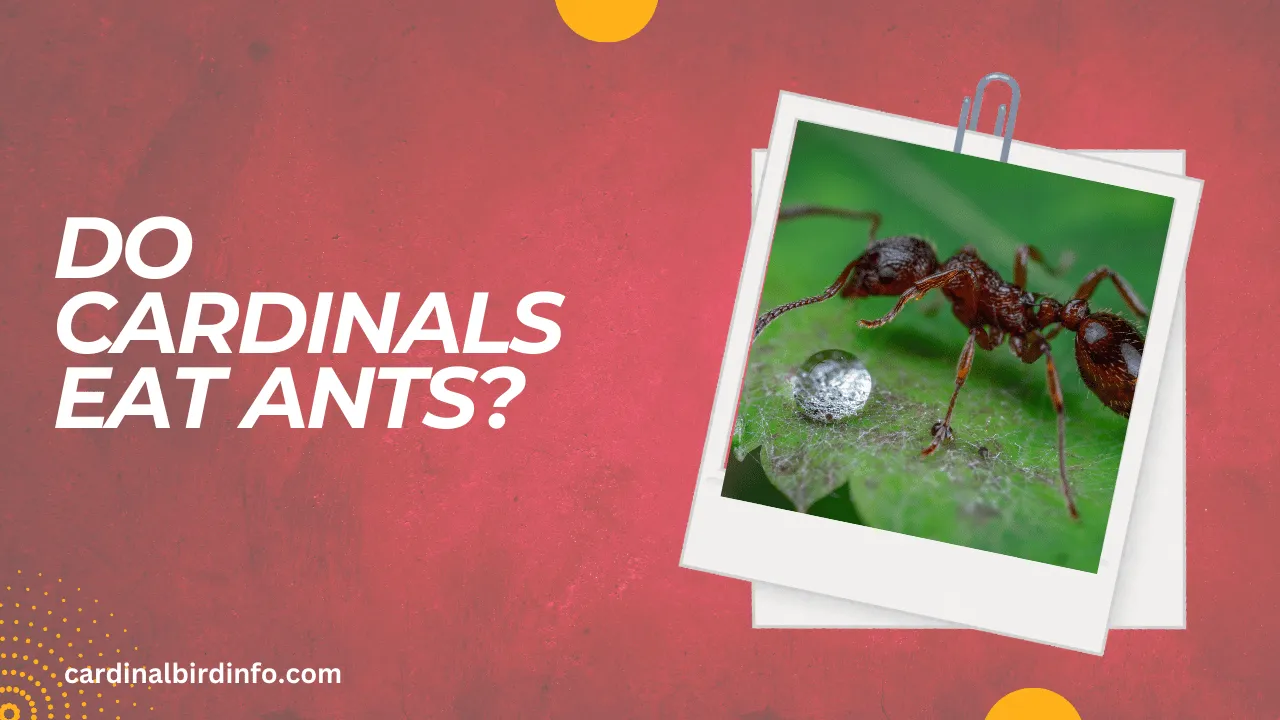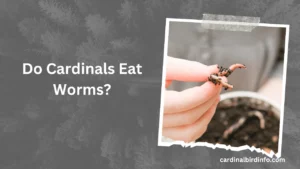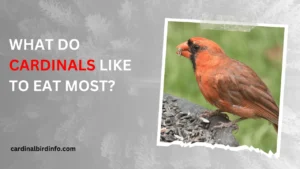In the vibrant world of backyard birdwatching, few sights are as captivating as a northern cardinal, with its striking red plumage flitting among the branches. One day, while observing these stunning creatures, I noticed a cardinal pecking at the ground, seemingly fascinated by something unseen.
Curiosity piqued, I leaned closer and realized it was munching on ants. This moment sparked a deeper inquiry into the cardinal’s diet and the role that ants play in it.
Cardinals, renowned for their colorful appearance and melodious songs, have dietary habits that often surprise even seasoned bird enthusiasts. While many are familiar with their love for seeds and fruits, the inclusion of ants in their diet raises intriguing questions about their nutritional choices.
Understanding whether cardinals eat ants isn’t just a matter of avian trivia; it reveals important insights into their survival strategies and the intricate web of relationships within their ecosystem.
In this article, we will explore the fascinating topic of cardinals and their consumption of ants. We will delve into the nutritional benefits that ants provide, the factors influencing a cardinal’s decision to feast on these tiny creatures, and the potential pros and cons of such dietary choices.
By the end, you’ll have a comprehensive understanding of why cardinals might choose ants as part of their diet and what this means for their overall health and survival.
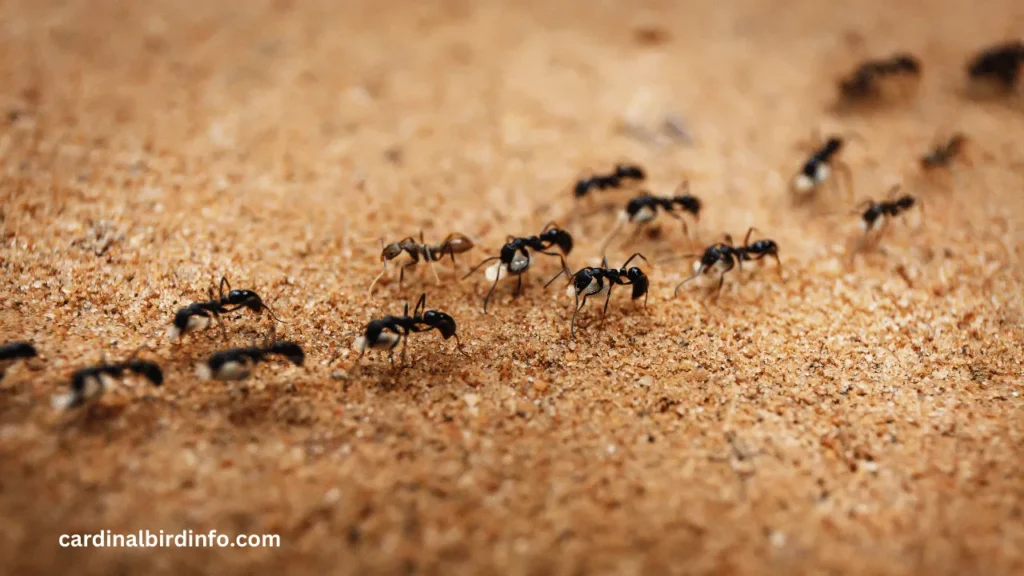
Contents
- 1 Nutritional Value of Ants
- 2 Factors Influencing a Cardinal’s Decision to Eat Ants
- 3 Benefits of Eating Ants
- 4 Potential Drawbacks of Eating Ants
- 5 Conclusion
- 6 FAQs
- 6.1 1. Do cardinals eat ants?
- 6.2 2. What nutritional value do ants provide for cardinals?
- 6.3 3. Are there specific types of ants that cardinals prefer?
- 6.4 4. How does the season affect a cardinal’s consumption of ants?
- 6.5 5. Can eating ants be harmful to cardinals?
- 6.6 6. Do cardinals eat other insects besides ants?
Nutritional Value of Ants
Ants are packed with essential protein, making them a highly valuable food source for cardinals. The high protein content supports the birds’ energetic lifestyles and is crucial during the breeding season when energy demands spike. Ants also offer a rich array of vitamins and minerals that can enhance a cardinal’s overall health.
In comparison to other common food sources like seeds and fruits, ants provide unique nutritional advantages. While seeds may offer fats and carbohydrates, ants deliver a protein boost that can be especially beneficial during certain seasons. This diversity in diet is vital for maintaining optimal health and ensuring reproductive success.
Factors Influencing a Cardinal’s Decision to Eat Ants
The availability of ants in a cardinal’s habitat plays a critical role in their dietary choices. Factors like seasonality and weather conditions can impact the abundance of ants, thereby influencing whether cardinals will seek them out. During warmer months, when ants are plentiful, cardinals may take advantage of this easy protein source.
A cardinal’s nutritional needs can shift dramatically, especially during breeding seasons. In these times, their bodies require more nutrients to support egg production and chick development. Ants provide a concentrated source of protein and other essential nutrients that can significantly enhance reproductive success.
Predation risk is another factor influencing a cardinal’s decision to consume ants. Foraging for ants can expose cardinals to potential threats from predators. They must weigh the nutritional benefits against the risks of becoming prey themselves while hunting for these tiny insects.
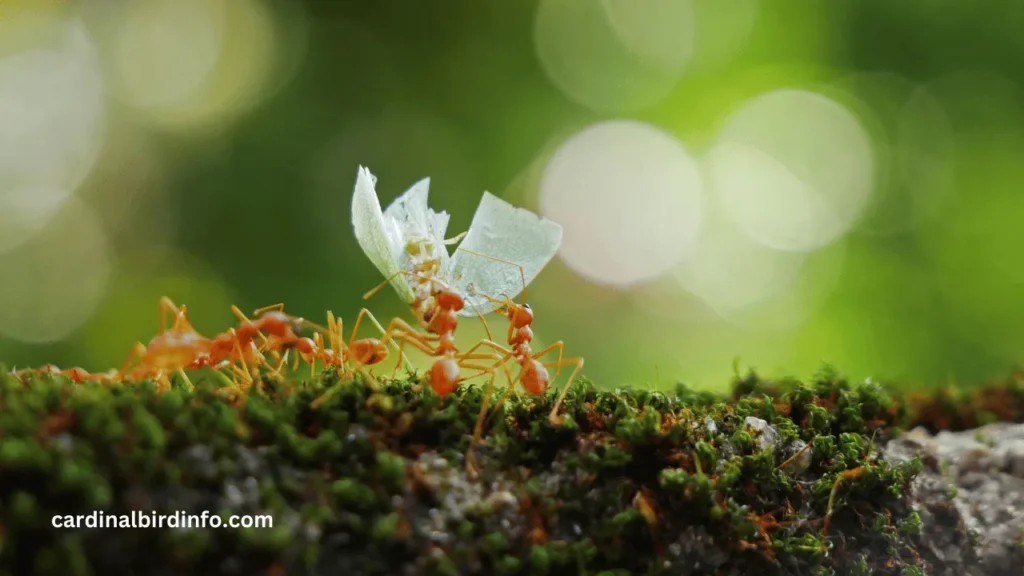
Benefits of Eating Ants
Eating ants can provide cardinals with a significant boost of energy, essential for their active lifestyles. The protein in ants helps sustain them during long flights and daily activities. This energy is crucial for their survival, especially when food is scarce.
Ant consumption can also enhance reproductive success. The essential nutrients found in ants are vital for egg production and the growth of chicks. Cardinals that incorporate ants into their diets may see healthier offspring and higher survival rates among their young.
Furthermore, including ants in their diet can improve a cardinal’s chances of survival during environmental stress. When other food sources become limited, ants can serve as a reliable alternative, helping to sustain cardinals through tough times.
Potential Drawbacks of Eating Ants
Despite their benefits, there are potential risks associated with eating ants. Some ant species produce toxins or defensive chemicals that could be harmful to cardinals. Birds have likely developed adaptations to mitigate these risks, but the threat remains a consideration when foraging for these insects.
Additionally, the act of searching for ants can increase predation risk for cardinals. As they focus on foraging, they may become more vulnerable to predators. This trade-off between nutrition and safety is a crucial factor in their feeding behavior.
Conclusion
In summary, cardinals do eat ants, and this dietary choice significantly impacts their health and survival. The high protein content of ants provides them with essential energy, especially during breeding seasons, and contributes to their overall reproductive success. While there are potential drawbacks, such as the risk of toxins and predation, the benefits often outweigh these concerns.
The implications of cardinals’ ant consumption extend beyond individual health; they highlight the interconnectedness of species within ecosystems. Understanding these dietary habits can inform conservation efforts, ensuring that cardinals and their habitats are preserved for future generations.
As we observe these vibrant birds in our backyards, let’s appreciate their diverse diets and the intricate relationships they maintain within their ecosystems. This understanding not only deepens our appreciation of nature but also underscores the importance of safeguarding the environments where these beautiful creatures thrive.
FAQs
1. Do cardinals eat ants?
Yes, cardinals do eat ants as part of their diet. They find ants to be a nutritious food source.
2. What nutritional value do ants provide for cardinals?
Ants are high in protein, vitamins, and minerals, which support cardinals’ energy needs and overall health.
3. Are there specific types of ants that cardinals prefer?
Cardinals may prefer easily accessible ant species that are abundant in their habitat, but they will consume various types depending on availability.
4. How does the season affect a cardinal’s consumption of ants?
The availability of ants can fluctuate with the seasons, impacting how often cardinals include them in their diet.
5. Can eating ants be harmful to cardinals?
Some ants may contain toxins or chemicals that could be harmful. However, cardinals have likely adapted to mitigate these risks.
6. Do cardinals eat other insects besides ants?
Yes, cardinals have a diverse diet and may also eat seeds, fruits, and other insects in addition to ants.

